Key Takeaways
1. Entrepreneurial Passion Drives Organizational Transformation
"I want to tempt you to swim against the tide. I want to pass on to others, to younger folk, the taste of hard work, for improvement, for investing savings in the opening of a shop or workshop, and then to extend and enlarge it, not just for the sake of making money out of it but to give root to an idea."
Entrepreneurial Spirit Matters. Howard Schultz's return to Starbucks was fundamentally about reigniting the company's original passion and innovative spirit. Transformation is not just about financial metrics, but about rekindling the fundamental beliefs that originally drove the organization's creation.
Key Transformation Elements:
- Reconnecting with the company's original mission
- Challenging existing operational assumptions
- Creating space for risk-taking and experimental thinking
- Maintaining emotional investment in the organization's purpose
Personal Commitment Drives Change. Schultz demonstrated that true organizational transformation requires deeply personal commitment, going beyond mere strategic planning to embodying the company's core values and inspiring others to believe in the potential for renewal.
2. Brand Value Lies in Human Connection, Not Just Transactions
"Starbucks is not a coffee company that serves people. It is a people company that serves coffee."
Emotional Connection Trumps Product. Starbucks' success was never solely about selling coffee, but about creating a "third place" between home and work where people could connect, feel welcomed, and experience a sense of community. The brand's true value emerged from understanding human needs beyond mere consumption.
Dimensions of Human Connection:
- Creating comfortable, welcoming physical spaces
- Training employees to provide genuine interactions
- Recognizing customers as individuals, not transactions
- Developing a sense of belonging and emotional resonance
Relationship-Centered Business Model. By prioritizing human experiences over pure economic transactions, Starbucks transformed how businesses conceptualize customer relationships, demonstrating that emotional engagement can be a sustainable competitive strategy.
3. Crisis Reveals a Company's True Character
"Success is not sustainable if it's defined by how big you become. Large numbers that once captivated me are not what matter. The only number that matters is 'one.' One cup. One customer. One partner. One experience at a time."
Crisis as Transformational Opportunity. The 2008 economic downturn and Starbucks' internal challenges became a crucible for organizational renewal. Rather than viewing the crisis as a threat, Schultz saw it as an opportunity to reassess and realign the company's fundamental approach.
Crisis Response Strategies:
- Maintaining transparency with stakeholders
- Making difficult but principled decisions
- Investing in people during challenging times
- Using adversity to spark innovation
Principled Leadership Under Pressure. Schultz demonstrated that true leadership emerges not during prosperity, but during challenging periods when tough choices must be made while maintaining organizational integrity and human dignity.
4. Innovation Requires Courage and Willingness to Experiment
"Innovation is not only about rethinking products, but also rethinking the nature of relationships."
Breakthrough Innovation Demands Risk. Successful innovation goes beyond incremental improvements, requiring organizations to challenge existing paradigms and be willing to experiment, even at the risk of potential failure. Starbucks' VIA instant coffee exemplified this approach.
Innovation Principles:
- Embrace unconventional ideas
- Create environments that support creative thinking
- Learn from failures
- Maintain alignment with core organizational values
Systematic Approach to Innovation. Schultz demonstrated that innovation is not random but can be systematically cultivated through structured exploration, careful testing, and a commitment to understanding customer needs.
5. Leadership Is About Maintaining Core Values During Change
"We are not a perfect company. We make mistakes every single day. We put our heart and our conscience first."
Authentic Leadership Requires Consistency. Effective leadership is not about presenting a perfect image, but about maintaining transparency, admitting mistakes, and consistently reinforcing fundamental organizational values even during transformation.
Leadership Pillars:
- Transparent communication
- Emotional intelligence
- Commitment to organizational purpose
- Willingness to acknowledge and learn from mistakes
Values as Organizational Compass. During significant changes, leaders must use core values as a navigational tool, ensuring that tactical shifts do not compromise the fundamental organizational identity and principles.
6. Digital Engagement Becomes Critical for Modern Businesses
"Innovation is about rethinking the nature of relationships, not just rethinking products."
Digital Platforms Redefine Customer Interaction. Modern businesses must view digital platforms not as mere marketing channels, but as genuine spaces for meaningful customer engagement and collaborative value creation.
Digital Strategy Components:
- Two-way communication platforms
- User-generated content integration
- Real-time responsiveness
- Community-building mechanisms
Technology as Relationship Enhancement. Digital tools should be leveraged to deepen human connections, not replace them, creating more personalized and meaningful customer experiences.
7. Social Responsibility Is a Competitive Advantage
"The great companies of this century will be sharp to success and at the same time sensitive to the idea that you can't measure the true success of a company on a spreadsheet."
Ethical Practice as Strategic Differentiator. Companies can create competitive advantages by integrating social responsibility into their core business model, demonstrating that profitability and positive societal impact are not mutually exclusive.
Social Responsibility Dimensions:
- Ethical sourcing practices
- Environmental sustainability
- Community investment
- Transparent supply chain management
Holistic Business Perspective. By viewing social responsibility as a strategic imperative rather than a peripheral activity, organizations can create more resilient and meaningful business models.
8. Cost Management Must Balance Efficiency with Humanity
"We cannot control the economy, but we can exert greater control over how we operate in it."
Operational Efficiency Requires Human Sensitivity. Effective cost management goes beyond numerical calculations, requiring a nuanced approach that preserves organizational culture and employee dignity.
Balanced Cost Management:
- Prioritize long-term sustainability
- Maintain investment in human capital
- Create efficiency without compromising quality
- Involve employees in optimization processes
Strategic Cost Transformation. Successful organizations view cost management as a collaborative, strategic process that aligns operational efficiency with human potential.
9. Customer Experience Is the Ultimate Differentiator
"Every cup. Every customer. Every partner. Every store."
Holistic Experience Design. Superior customer experiences emerge from meticulously designed interactions that go beyond transactional expectations, creating memorable and emotionally resonant moments.
Experience Design Elements:
- Consistent service quality
- Personalized interactions
- Sensory engagement
- Emotional connection
Granular Attention to Detail. Exceptional experiences are created through disciplined, intentional design at every possible touchpoint.
10. Personal Conviction Can Overcome Systemic Challenges
"Life is a sum of all your choices."
Individual Agency Drives Organizational Change. Transformative leadership requires unwavering personal belief, the courage to challenge existing systems, and the ability to inspire collective action.
Conviction-Driven Transformation:
- Maintain clear vision
- Communicate compelling narrative
- Lead by example
- Remain adaptable
Persistent Belief as Catalyst. Personal conviction, when authentically expressed and strategically implemented, can overcome seemingly insurmountable organizational challenges.
Last updated:
FAQ
What's Onward: How Starbucks Fought for Its Life without Losing Its Soul about?
- Howard Schultz's Return: The book details Howard Schultz's return as CEO during a critical period for Starbucks, focusing on revitalizing the brand while maintaining its core values.
- Transformation Journey: It chronicles the company's struggles and the steps taken to address operational inefficiencies and reconnect with customers.
- Leadership and Values: Schultz emphasizes the balance between profitability and social responsibility, highlighting leadership decisions that impacted the company's culture and direction.
Why should I read Onward: How Starbucks Fought for Its Life without Losing Its Soul?
- Inspiring Leadership Lessons: The book offers insights into effective leadership during crises, providing practical advice for aspiring leaders.
- Understanding Brand Values: Readers gain a deeper understanding of maintaining a brand's core values while pursuing growth and innovation.
- Real-World Business Strategies: Schultz shares strategies for business transformation, making it relevant for entrepreneurs and business professionals.
What are the key takeaways of Onward: How Starbucks Fought for Its Life without Losing Its Soul?
- Balance Profit and Humanity: Schultz stresses the importance of prioritizing both profitability and social responsibility for long-term success.
- Embrace Change and Innovation: The narrative highlights the need for adapting to market conditions and fostering a culture of innovation.
- Engage Employees and Customers: Building strong relationships with employees and customers is crucial for brand revival and success.
What are the best quotes from Onward: How Starbucks Fought for Its Life without Losing Its Soul and what do they mean?
- “Life is a sum of all your choices.”: This quote emphasizes the impact of decisions on future outcomes, both in business and life.
- “We are in the people business and always have been.”: It underscores Starbucks' commitment to human connection and the importance of relationships.
- “Onward.”: This phrase symbolizes resilience and the commitment to progress despite challenges, encapsulating the spirit of the company's journey.
How did Howard Schultz address Starbucks' challenges in Onward?
- Store Closures: Schultz made the tough decision to close underperforming stores to improve profitability and streamline operations.
- Espresso Excellence Training: He initiated a nationwide training program to enhance coffee quality and customer service.
- Transformation Agenda: Schultz introduced a strategic framework to revitalize the company, focusing on customer engagement and product quality.
What is the Transformation Agenda in Onward?
- Strategic Framework: The Transformation Agenda outlines Starbucks' goals and initiatives for revitalization, aiming to become the undisputed coffee authority.
- Seven Big Moves: It includes key initiatives like engaging partners and expanding global presence to address specific company challenges.
- Long-Term Vision: Schultz emphasizes that the agenda is a long-term commitment to excellence, ensuring sustainable growth while preserving core values.
How did Howard Schultz reconnect with Starbucks partners in Onward?
- Open Forums: Schultz reinstated open forums for direct communication between leadership and partners, allowing employees to voice concerns.
- Personal Engagement: He encouraged partners to reach out directly via email, personally responding to thousands of messages to rebuild trust.
- Empowering Store Managers: Schultz focused on empowering store managers with tools and support to enhance customer experience.
What role did coffee quality play in Onward?
- Core Business Focus: Schultz stressed that maintaining high coffee quality standards was essential for Starbucks' identity.
- Pike Place Roast Launch: The introduction of this brew reaffirmed Starbucks' commitment to quality and brand heritage.
- Clover Acquisition: Acquiring the Clover brewing system aimed to elevate coffee quality and enhance the customer experience.
How did Howard Schultz handle criticism in Onward?
- Embracing Transparency: Schultz acknowledged criticism and emphasized transparency about the company's challenges to rebuild trust.
- Listening to Feedback: He actively sought feedback from partners and customers, using platforms like MyStarbucksIdea.com to engage with the audience.
- Staying True to Values: Despite pressures, Schultz remained committed to Starbucks' core values, refusing to compromise on quality or ethical sourcing.
What impact did the economy have on Starbucks in Onward?
- Consumer Spending Decline: The economic downturn affected consumer spending habits, impacting Starbucks' sales.
- Operational Challenges: The environment forced Starbucks to confront inefficiencies and make difficult decisions like store closures.
- Focus on Value: Schultz emphasized providing value to customers, introducing initiatives like the Rewards Card to incentivize loyalty.
How did Howard Schultz approach leadership in Onward?
- Decisive Action: Schultz highlights the need for quick, informed decision-making during crises, making tough choices to steer the company.
- Empowering Others: He believed in surrounding himself with strong talent and fostering collaboration and open communication.
- Balancing Accountability and Support: Schultz discusses holding employees accountable while providing necessary tools and support for success.
How did Starbucks maintain its core values during the transformation in Onward?
- Commitment to Ethical Sourcing: Schultz emphasized maintaining high ethical standards in sourcing coffee, partnering with organizations like Fairtrade.
- Focus on Community Engagement: Starbucks engaged in community efforts, reinforcing social responsibility as integral to the company's identity.
- Employee Well-Being: Schultz prioritized employee support, including health care, even during financial challenges, to foster loyalty and positive culture.
Review Summary
Onward receives mixed reviews from readers. Some praise Schultz's passion for coffee and business acumen, appreciating insights into Starbucks' turnaround and corporate culture. Others criticize the book as self-congratulatory and repetitive, lacking personal depth. Many found the business strategies interesting but disliked the corporate jargon. Starbucks fans generally enjoyed the behind-the-scenes look, while critics felt it was overly promotional. The book's strengths lie in detailing Starbucks' challenges and innovations, though its organization and tone were often considered flaws.
Similar Books
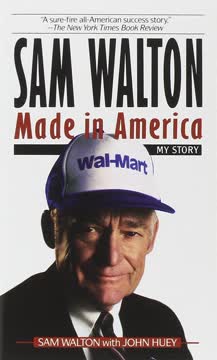




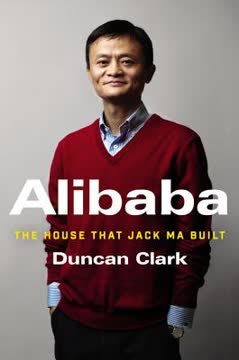
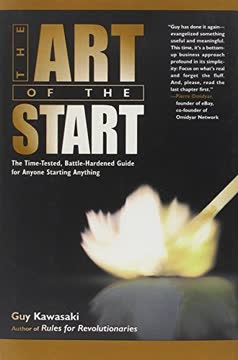
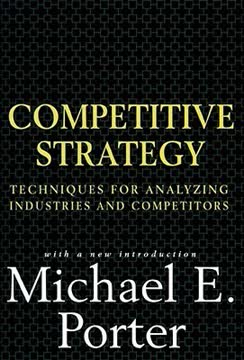
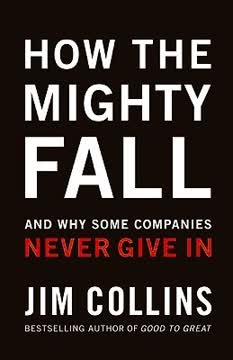

Download PDF
Download EPUB
.epub digital book format is ideal for reading ebooks on phones, tablets, and e-readers.




